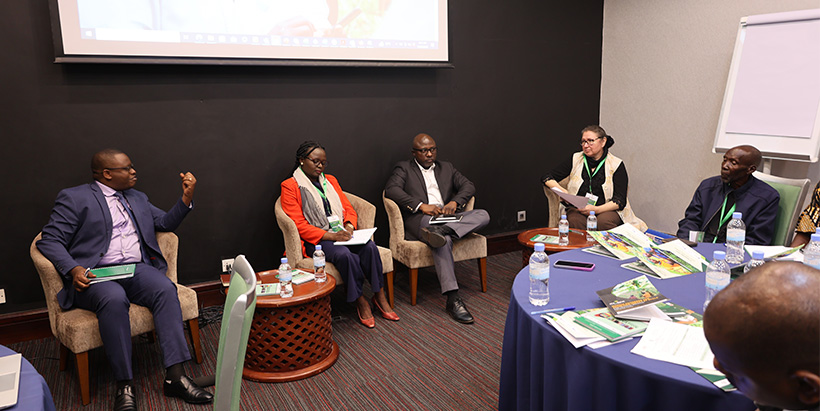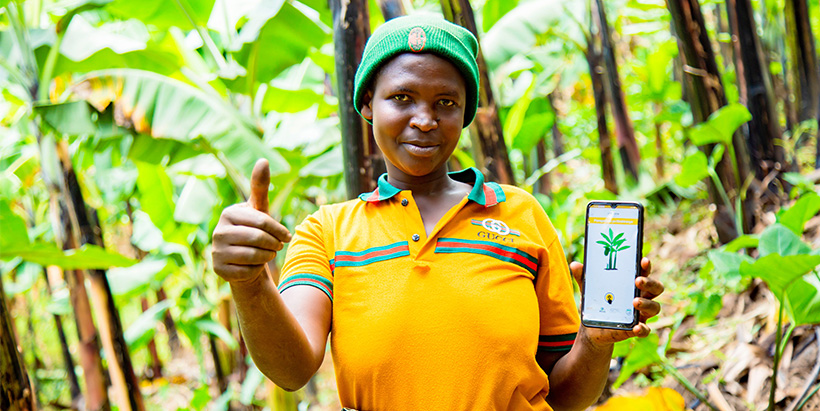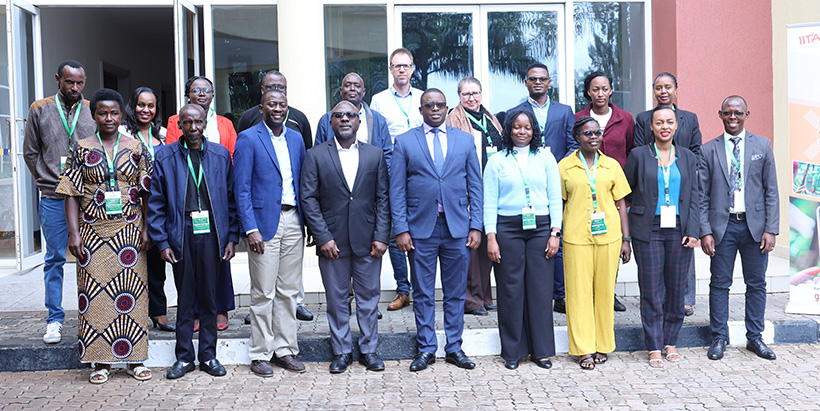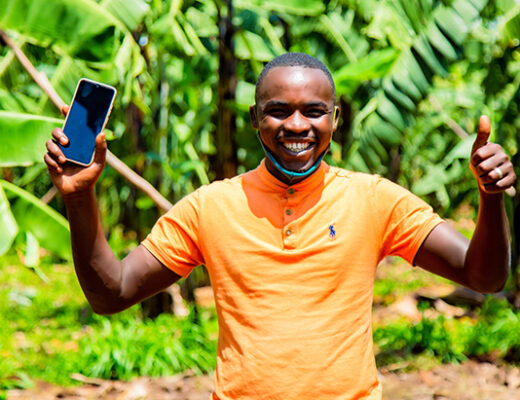ICT4BXW held a closing workshop, marking the end of a six-year project that ran from 2018 through 2023. The project focused on developing and deploying digital tools to combat Banana Xanthomonas Wilt (BXW) disease in Rwanda.
The end-of-project workshop for ICT4BXW project marked a significant moment, bringing together key stakeholders, government officials, extensionists, and the project team in a conference room adorned with banners depicting the journey of the past six years.
The workshop was a crucial platform for reflecting on the project achievement, sharing insights, and discussing the impact with stakeholders. The participants reflected on the milestones achieved to improve banana agronomy and address the threat of Banana Xanthomonas Wilt (BXW) disease using digital tools.
The project’s primary objective has been centered on developing and deploying digital tools to empower Farmer Promoters and Farmers to combat BXW and promote best banana agronomic practices. These tools have been beneficial to the local extension agents, and provided the national banana program with a real-time surveillance dashboard for monitoring the disease’s spread, enabling timely and targeted interventions.
Dr. Olivier Kamana, the Permanent Secretary of the Ministry of Agriculture and Animal Resources, graced the event with his presence. In his address, he expressed his appreciation for the project’s contribution to sustainable banana agronomy in Rwanda and its efforts to embrace digital technology for the benefit of farmers.
“Having our farmers exposed to emerging technologies to monitor the safety of their crops and increase production is truly amazing. In the current digital world, our farmers should not be left behind. The Ministry of Agriculture values the banana crop, and we want to increase our efforts towards this crop. So, I thank IITA and GIZ for funding and implementing this project, contributing significantly to the banana value chain in Rwanda,” remarked Dr. Kamana.
Matieyedou Konlambigue, the IITA Country Representative, acknowledged the collaborative efforts and support received from the national agriculture system, particularly the Rwanda Agriculture and Animal Resources Development Board (RAB) and the Ministry of Agriculture and Animal Resources (MINAGRI).

From left to right: Dr Kamana Olivier, Permanent Secretary at the Ministry of Agriculture and Animal Resources; Angelique Uwimana, Digital Agriculture and Innovation Specialist at FAO; Matieyedou Konlambigue, IITA Country Representative; Dr Svetlana Gaidashova, Banana Team Lead at the Rwanda Agriculture and Animal Reources Development Board (RAB).
As the workshop delved into discussions about the project’s legacy, the participants explored various pathways for sustainability. Ensuring that the positive impacts of the ICT4BXW project endure beyond its completion is crucial for the continued well-being of banana farmers and the agriculture sector. The question emerged: How could the digital tools, thoroughly developed and fine-tuned over the years, continue to benefit banana extension services and farmers after the project’s closure?
The commitment from the Ministry of Agriculture (MINAGRI) to take proactive measures for the sustainability of digital tools represents a significant step toward ensuring the continuing impact of the ICT4BXW project.
Plans are now set to integrate these tools into ongoing agricultural extension programs and initiatives, ensuring that the knowledge and technology developed by the ICT4BXW project would not go dormant. The commitment towards keeping farmers updated with technological advancements underscored the importance of embracing innovation in agriculture.
Dr. Julius Adewopo, the Project Leader, shared his thoughts on the occasion, “The ICT4BXW project has been a journey of collaboration, innovation, and impact. We stand here today, not just as witnesses to the end of a project, but as champions for sustainable banana agronomy and production. Our co-developed and successfully scaled digital innovation clearly demonstrates a collective commitment to the future of Rwandan agriculture – a future where farmers are empowered to take decisions in real-time to secure and improve their farm management outcomes.”
As the ICT4BXW project comes to an end, its legacy will linger on—a legacy of empowered extensionists, banana farmers, and a resilient banana value chain stimulated by digital innovation. The end-of-project workshop served as both a reflection on achievements and a catalyst for the continued growth of sustainable banana agronomy in Rwanda.






No Comments